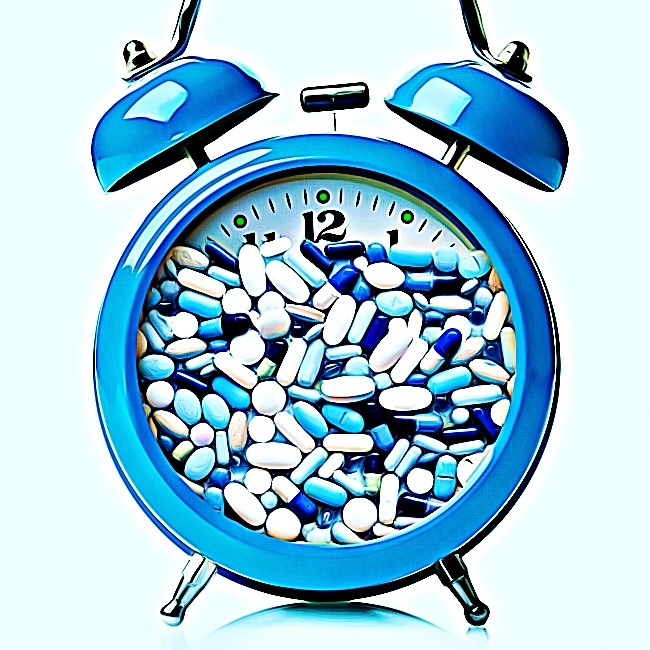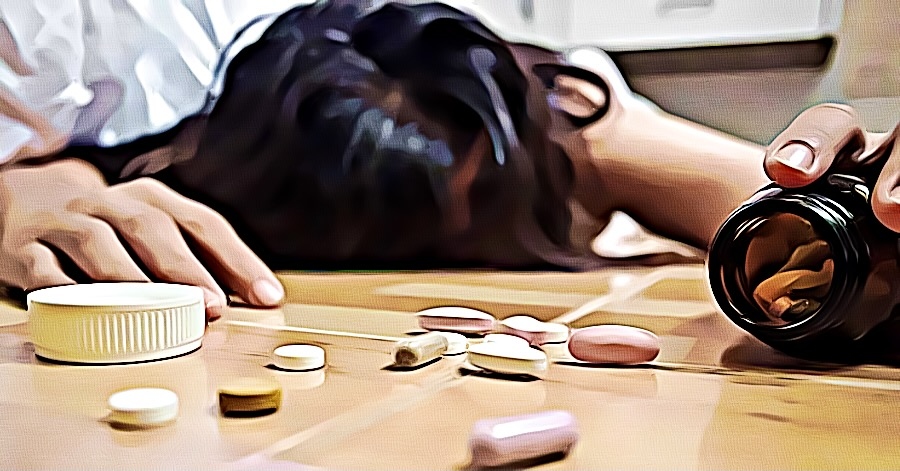Even though millions of people rely on sleep aids to get a good night’s sleep, tolerance and reliance can develop. An overdose might occur if you take too many sleeping drugs.
The frequency of sleeping tablets is perhaps one of the most serious risks. Antihistamines, whether prescribed or over-the-counter, may be assumed to be safe when used every night. Tolerance and dependency, on the other hand, can have unexpected consequences.
People want help falling asleep or staying asleep for various reasons, but some may abuse medicines to feel their effects. Because of the potential for abuse, it is critical to be aware of the risks associated with sleeping tablets, particularly the risk of overdose.
A Quick Look at the Article:
- Sleeping tablets help people get a good night’s sleep and conquer insomnia.
- Sleep medicine overdose can result in death.
- Sleeping pill overdose symptoms include excessive tiredness, abdominal pain, breathing difficulties, and clumsiness.
- Taking 60–90 times the recommended dose of sleeping tablets can result in overdosing.
- Flumazenil is frequently used to counteract the effects of a sleeping medication overdose and stomach pump removal.
What Happens If You Take Too Many Sleep Aids?
Depending on the type of drug and amount, overdosing on sleeping pills can result in various results. While benzodiazepine overdoses are uncommon, they can be lethal when taken with other substances like opioids.
Barbiturates, particularly sleep aids, have been used in suicide attempts. Researchers made sleeping aids safer to use, and the risk of fatal overdoses has decreased as the use of barbiturates has decreased.
What Makes People Take Sleeping Aids?
Between 50 and 70 million Americans agonize from insomnia, and 4% of the population takes sleeping pills. Millions of people utilize sleep aids every night to achieve longer, higher-quality sleep cycles.
These sleeping medications and aids include high-concentrated prescriptions as well as over-the-counter medicines.
To treat insomnia, doctors give a wide range of medications. Ambien, Lunesta, and Rozerem are among the most popular brands. Furthermore, several benzodiazepine sedatives and antidepressants have been reported to give similar treatment, although these medications come
with the added risk of addiction.
When Do Sleeping Pills Start Working?
Within half an hour, most prescription sleeping medications begin to operate. These sleep medicines are FDA-approved and well-studied:
- Eszopiclone (Lunesta) has a 30-minute onset and an eight-hour duration.
- Zaleplon (Sonata) has a 30-minute onset and a four-hour duration.
- Zolpidem (Ambien, Edluar, Intermezzos) takes 20 to 30 minutes to take effect and lasts four to eight hours.
- Suvorexant (Belsomra) has a 30-minute onset time and lasts at least seven hours.
- Within 45 minutes, Ramelteon’s (Rozerem) achieves peak levels in your body.
- Benzodiazepines are prescription drugs that are sometimes used to help people sleep and work swiftly. Temazepam is a common benzodiazepine for sleep (Restoril).
Melatonin is a synthetic hormone and over-the-counter sleep aid that takes effect in 30 minutes and lasts for 4–8 hours.

What Are Sleeping Pills’ Side Effects?
Before an overdose, the harmful side effects of sleeping drug misuse can begin. One such result is sleep-related injuries. Due to poor judgment and coordination caused by sleep medicines, some users have been involved in car accidents. There have also been reports of crimes and self-harm. These incidents occur when people are oblivious of their conduct.
If you use too many sleeping pills, you may have the following symptoms:
- Excessive lethargy: People who often take sleeping drugs should be able to distinguish between normal sleepiness and something more problematic.
- Unexpected acts or behaviors: Tiredness leads to clumsiness, which leads to mistakes. When people are tired, they behave differently, yet they pay particular attention to extreme, drunk-like behavior.
- Breathing irregularities: Slow or irregular breathing could suggest an overdose and be thoroughly monitored. If the person looks to be gasping for air or if respiration stops and consciousness is lost, perform CPR and phone 911.
An overdose victim is usually unable—or unwilling, in the case of intentional overdose — to call the appropriate authorities. Sleeping drugs have such strong sedative properties that a sufferer may fall asleep before taking any precautions. An eyewitness may be required to assist in the scenario.
Sleeping Pill Addiction and Abuse
Sedative-Hypnotics are frequently used for insomnia. Unfortunately, many people grow addicted to drugs and become dependent on them.
Although Sleeping Pills are effective for treating short-term insomnia, many people grow addicted to them. The odds are stacked against them. Between 2006 and 2011, approximately 38 million prescriptions for Ambien were written.
Given their broad availability and presumed medical approval, it’s no surprise that so many people succumbed to the effects of Sleeping Pills.
Many people mistakenly believe that sleeping drugs cannot be addictive, and some even claim to have received this information from their doctor. Some folks, however, cannot fall asleep without the use of a sleeping pill. Many people discover that when their tolerance increases, they must take larger doses to have the desired effect.
Many people are unaware that they have become reliant or addicted to their medication until they stop taking it. Subsequently, they may develop withdrawal symptoms, a sign of dependence, and addiction.
Sleeping Pill Effects and Abuse
Doctors often only prescribe sleeping medications for short-term use. Doctors prescribe them for severe insomnia and are not always on a rigid dosing regimen. These medications are quick-acting and can be taken as needed (PRN).
Unfortunately, many people start taking sleeping pills if they have trouble sleeping or confront a stressful situation in life.
Abuse occurs when sedatives are taken in ways that a doctor does not prescribe. Sleeping Pills have the same drowsy, feel-good effect as their extremely addictive relatives, Benzodiazepines, at greater doses. When a person takes sleeping pills but resists the urge to sleep, the medicine can cause hallucinations.
Other sleeping pill side effects include:
- Anxiety is lessened
- Sleep deprivation
- Coordination issues
- Dizziness
- Lightheadedness
- Hallucinations
Abuse of sleeping pills has also increased among high school and college students simply searching for a good time. The medicines can amplify the effects of a hangover or provide a comparable sensation on their own. Access to a prescription (either their own or their parents) is too common among young people living at home.
The effects of sleeping drugs on brain function can manifest as soon as the medicine is first taken.
Is it Possible to Overdose on Sleeping Pills?
Overdosing on sleeping drugs is conceivable. All sleeping drugs are central nervous system depressants that help sleep by slowing down your brain’s activity.
As a result, it’s critical to take sleeping tablets as directed. Overdosing can occur if you take a bigger dose than recommended or take tablets more frequently. This is especially true if you combine sleeping drugs with other substances such as opioids or alcohol.
Sleeping Pill Overdose Treatment
Overdoses of sleeping pills are normally treated with supportive care, which means the doctor keeps an eye on the patient’s breathing and cardiovascular system. At the same time, the benzodiazepine works its way out of the system. In some cases, overdose addiction treatment may include activated charcoal, hemodialysis, or entire bowel irrigation.
Doctors only use flumazenil on rare occasions. It restores a victim’s natural state by reversing the effects of benzodiazepines. However, the hazards of flumazenil outweigh the benefits due to the possibility of seizures and cardiac rhythm abnormalities.
Conclusion
The brain becomes acclimated to the effects over time, making a recovery more difficult. Recovering Sleeping Pill addicts frequently experience “rebound insomnia,” or worse sleeplessness than before taking Sleeping Pills. This is a typical side effect that should not be used to justify continuing to take Sleeping Pills. Fortunately, medically assisted detox and rehabilitation centers can help to reduce these and other withdrawal symptoms.
Source: https://bewell.stanford.edu/waking-up-to-sleeping-pill-risks/

